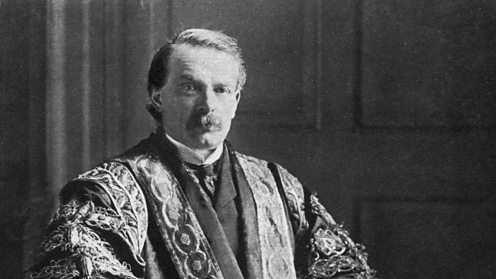ENGLAND DISCRIMINATED AGAINST BY THE BRITISH GOVERNMENT ON SPENDING – CONFIRMED YET AGAIN BY HOUSE OF COMMONS LIBRARY
The House of Commons Library published a paper in November last year which was brought to my attention recently. The report has the figures for the financial year 2016/17 of the Barnett Formula. The Barnett Formula determines that differential spending on UK citizens depending on which of the UK countries those citizens live in.
The summary of the House of Commons research paper shows that England has the lowest national average spent on every man, woman and child. This was £8,898 in 2016/17. In Northern Ireland by contrast, it was £11,042.
If you live in the English “Regions” of the South East, East of England, East Midlands, South West or West Midlands you get less spent on you than even the average of England. It is only in London that British Government spending is more than even one of the other Nations of the UK. It is slightly more than Wales. London has £10,192 for every man, woman and child, instead of the Welsh average of £10,076!
This Barnett Formula spread in payments, which advantages Scotland, Wales and Northern Ireland is only for so-called “identifiable expenditure”, which is about 88% of the total public spending of the UK. So the costs of the Foreign Office and of membership of the EU, and of Foreign Aid and Defence parts of the 12% of total public spending are not covered by the Barnett Formula. So also no allowance is made for the policies under which the British Government has headquartered British State agencies in Scotland and Wales, as for instance the DVLA and HMRC. This is of course a yet further method of increasing the British State subsidy to those nations.
It is worth pointing out that Scotland, Wales and Northern Ireland get yet a further method of subsidy at the moment through the EU. The contributions to the EU which come out of English Taxpayers’ pockets (as that is the only part of the UK for which there is a net tax revenue) are funnelled back to Scotland, Wales and Northern Ireland as EU payments, under the so-called “Conduit Effect”.
Some of the additional subsidy to London is not part of the Barnett Formula but is explained by the British State spending money on the security of its political class with its large expenditure on armed police to guard the State’s buildings, the provision of diversity barriers and all the other paraphernalia of running the British State.
The other aspect of this of course is that London is now in John Cleese’s words “no longer an English city”. The subsidy coming into London is from the predominantly English Regions to the predominantly non-English communities within London. This is the fiscal background to the anti-English, metropolitan, inter-nationalist, multi-culturalism of the Labour Party’s predominance in London.
In the last few days The Scottish Conservative Party under their multiculturalist Leader, Ruth Davidson, have been gloating again about Scotland’s “Union Dividend”.
Here is a quotation of part of their press release:-
“Scotland now raises eight per cent of UK total revenue, while receiving 9.3 per cent of spending.
Total spending per person in Scotland for 2017/18 was £1576 per head higher than the rest of the UK, compared to £1448 per head the previous year.
Scottish Conservative shadow finance secretary Murdo Fraser said:
“If Nicola Sturgeon wants to continue her threat of second referendum, she has to come out and explain where she would find £13 billion to fill this deficit.
“Assuming that can’t be done, the prospect of another divisive and unwelcome vote must be removed for good so Scotland can focus on what really matters.
“Yet again, the union dividend has been made clear.
“By being part of the UK, Scotland received an extra £1576 for every man, woman and child last year above the UK average. For a family of four, that’s more than £6000 in additional public spending.
“If Scotland was to be ripped out the UK, this spending would be slashed drastically, meaning schools, hospitals and infrastructure would be hit.
“Any Scottish Government would also have to massively increase taxes and borrowing to help make up the difference, something the hardworking public simply wouldn’t accept.
As a demonstration of how “Fake News” looks here is the text of the Telegraph’s article about this with its minor editing of the Scottish Conservatives’ Press Release:-
SNP urged to ditch plans for indyref2 as figures reveal Scotland’s £13 billion deficit is four times the size of the UK’s
22 AUGUST 2018 •
That figure is made up of public spending that was £1,576 higher per person north of the border in 2017/18, while Scotland’s public sector tax contributions were £306 less per head.
The Government Expenditure and Revenue Scotland (Gers) figures – the difference between what the country raised in taxes and what it spent – revealed a total deficit of £13.4 billion, or 7.9 per cent of GDP -down from 8.9 per cent in 2016/17. The UK’s spending deficit was just 1.9 per cent of GDP, down from 2.3 per cent.
Overall, Scotland’s public finances showed a slight improvement, thanks to North Sea revenue rising by more than £1 billion.
The First Minister claimed the figures proved Scotland was “on the right trajectory”, when considered alongside recent positive labour market statistics.
She added: “With the limited economic powers currently at our disposal, the actions we are taking to promote sustainable economic development are helping to ensure that the key economic indicators are moving in the right direction.”
However, the Scottish Conservatives said the finances of the rest of the UK were improving faster and the gap between the two was widening, with Scotland now raising eight per cent of total UK revenue, while receiving 9.3 per cent of spending.
Murdo Fraser, Tory finance spokesman, said Ms Sturgeon needed to ditch plans for a new bid to break-up Britain or explain how she would find the billions required to file Scotland’s economic black hole in the event of independence.
He added: “If Nicola Sturgeon wants to continue her threat of second referendum, she has to come out and explain where she would find £13 billion to fill this deficit.
“Assuming that can’t be done, the prospect of another divisive and unwelcome vote must be removed for good so Scotland can focus on what really matters.
These figures confirm that being part of a strong United Kingdom is worth nearly £1,900 for every single person in ScotlandDavid Mundell
“Yet again, the union dividend has been made clear. By being part of the UK, Scotland received an extra £1,576 for every man, woman and child last year above the UK average. For a family of four, that’s more than £6,000 in additional public spending.
“If Scotland was to be ripped out the UK, this spending would be slashed drastically, meaning schools, hospitals and infrastructure would be hit.
“Any Scottish Government would also have to massively increase taxes and borrowing to help make up the difference, something the hardworking public simply wouldn’t accept.









